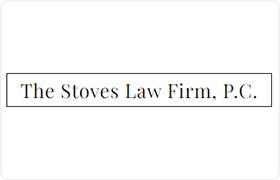Hazel Green DUI-DWI Lawyer, Alabama
Sponsored Law Firm
-
 x
x

Click For More Info:
-
The Stoves Law Firm, P.C.
9 Office Park Cir Suite 105 Birmingham, AL 35223» view mapCriminal Defense Legal Expertise You Can Rely On
The Stoves Law Firm, P.C. provides outstanding Criminal Defense and Litigation services to individuals and businesses throughout the State of Alabama.
800-818-9390
FREE CONSULTATION
CONTACTHarlan D. Mitchell
Criminal, DUI-DWI, Divorce & Family Law, Car Accident, Collection
Status: In Good Standing
FREE CONSULTATION
CONTACTEdward Lynn Alley
Traffic, Domestic Violence & Neglect, Juvenile Law, DUI-DWI
Status: In Good Standing
 Jay Stoves Birmingham, AL
Jay Stoves Birmingham, AL Practice AreasExpertise
Practice AreasExpertise